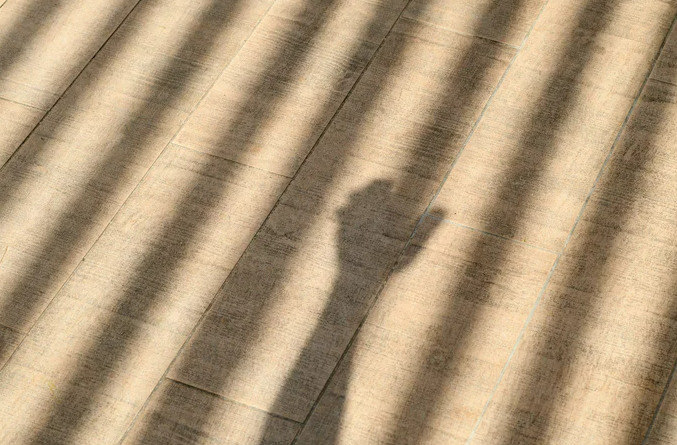Huffington Post Personal - My Son Is In Prison

The following essay, "My Son Is In Prison. This Common 4-Word Reaction From People Is Gut-Wrenchingly Insensitive" appeared in Huffington Post Personal. The author, Claire Greenberg, is a pseudonym for the author, a psychotherapist and mother of an incarcerated son. Note: Some names and details have been changed to protect the individuals in this essay.
Excerpts are included below.
*****
My personal misfortune occurred on Valentine’s Day five years ago, when 11 federal agents awakened me at 6 a.m. by pounding on my door. I was half-asleep, in ratty pajamas with morning-frenzy hair as I learned that my life-as-I-knew-it was officially over. There was no going back. They had come to arrest my 25-year-old son, Louie.
As a 66-year-old professional white woman, I had the extreme luxury of never having learned how to deal with cops, so I didn’t know that I could have refused to cooperate without a lawyer present. Instead, with minimal threats and heavy intimidation (and being quite outnumbered), I too easily gave up my son’s whereabouts, hundreds of miles from me. Within hours, I had secured a private attorney for him, and by day’s end, he was in custody.
It turns out to be both time-consuming and expensive to have an incarcerated son. The first six months were a steep and twisting learning curve for me, and I am still mastering the skills to be a staunch advocate. I also still struggle to accept how little influence I can have within the legal and criminal justice system. But this is not the most difficult aspect — the hardest part is my broken heart.
This calamity has expanded my understanding of the impact of race, class and privilege on Americans, especially within the criminal justice system. My merely basic knowledge of the real causes and impact of mass incarceration was a luxury that only someone in my privileged experience could afford. Now that I know — and now that I live in this world of court procedures and prison regulations — my political perspective has shifted further left. This exposure to the criminal justice system has also alienated me from much of my family and most of my white friends. Their privileged ignorance expresses itself as insensitive questions, biased assumptions or, worse, never asking after Louie anymore, as though he is dead.
Simple curious questions from colleagues or strangers who have limited or no exposure to prison life can also step into dangerous emotional territory. I can’t blame them for not knowing this is a minefield, but it is. It starts off simply by them asking, “Do you have children?”
“Yes, I have one son,” I respond casually, but my body tenses up. I know what’s coming.
“Oh, and where is he now?”
Here it comes. I take a breath. “Actually, he’s in prison,” I announce matter of factly, and all the oxygen is sucked out of the room with their inevitable gasp and covering their mouth with both hands.
And then it is now my responsibility to assuage their discomfort. Or worse, they blurt out their spontaneous follow-up question, “What did he do?”
The curiosity is understandable — completely so. But leading with those four little words shows little understanding of the injustices built into the system, assuming, first off, that he is guilty. And even that is of very little importance now. Louie is in prison, and he lives among the other men, guilty or innocent, all within the harsh and arcane rules of the prison.
We mothers are so involved in our children’s daily struggles and needs that we feel like we are “doing the time” with our sons. This involvement takes a huge toll on us, both financially and emotionally, and it does not diminish with time. In fact, the longer our sons are “in,” the more our physical health is in jeopardy. The women in one of my support groups reported high blood pressure, weight gain, diabetes, lost eyesight and increased alcohol use, all originating after their sons’ arrests. One mother told us that she changed so much, she had to change her name — the old one didn’t fit anymore.
Mothers of incarcerated sons are isolated by our internalized shame and lack of opportunities for community support. Our own shame silences us, and then the prison systems reinforce the separation from other mothers. We need recognition for the huge, thankless job we do to keep our sons alive and sane. We desperately need support services to address our grief and health-damaging stress. The first step is to break the silence, as the more that mothers can safely talk about what we’re going through, the more “normal” this experience will be viewed in the general culture. With about 1 million mothers of incarcerated sons in this country, we need and deserve better care.
In the meantime, I limp along with a chronic tug on my broken heart and a deeper understanding of how our criminal “justice” system punishes entire families without even a pretense of offering rehabilitation to incarcerated people or support services to those who love them. I am not at all who I was before the calamity of five years ago. I am an angry citizen, a lonelier friend and a better mother.
*****
You can read the full essay, "My Son Is In Prison. This Common 4-Word Reaction From People Is Gut-Wrenchingly Insensitive" at the Huffington Post website.










